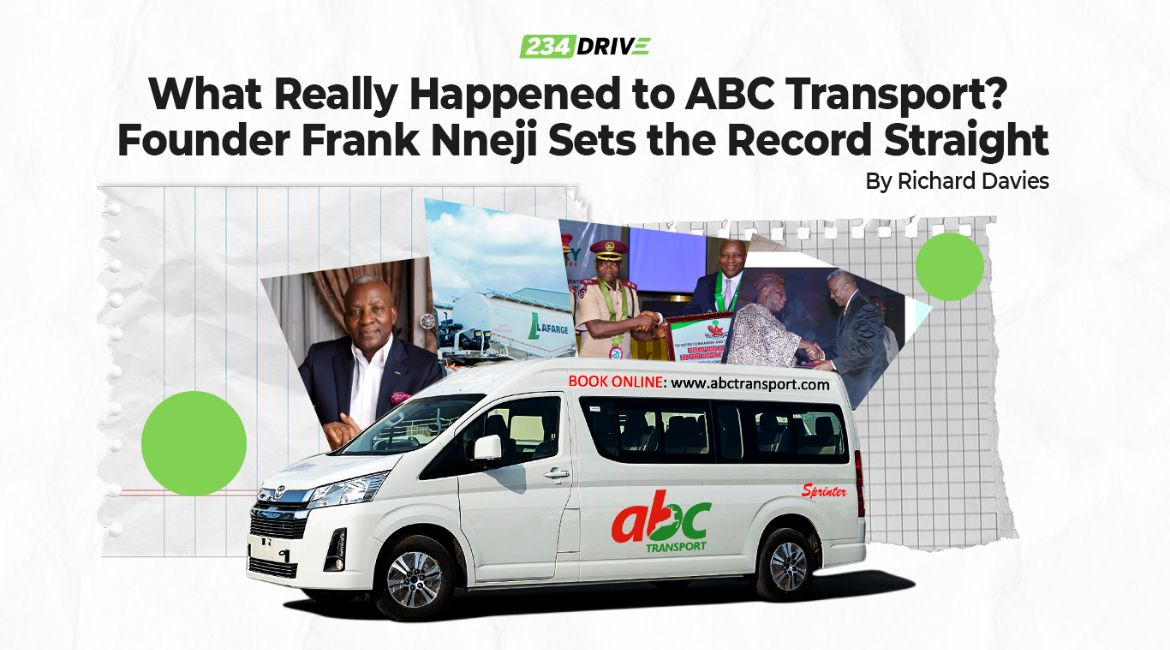Just in February, we published a deep dive on ABC Transport’s apparent decline and the response was overwhelming. Travellers shared their thoughts, questions poured in and most notably, the story caught the attention of ABC’s visionary founder, Frank Nneji. In view of their 32nd anniversary, he reached out to us to set the record straight. Nneji revealed that even though ABC buses may not be on the road as much as before, the company is still very much a force in the transportation sector. In this interview, he offers exclusive insights into ABC’s remarkable journey, challenges and persisting relevance.

Can you take us through the story of how ABC started?
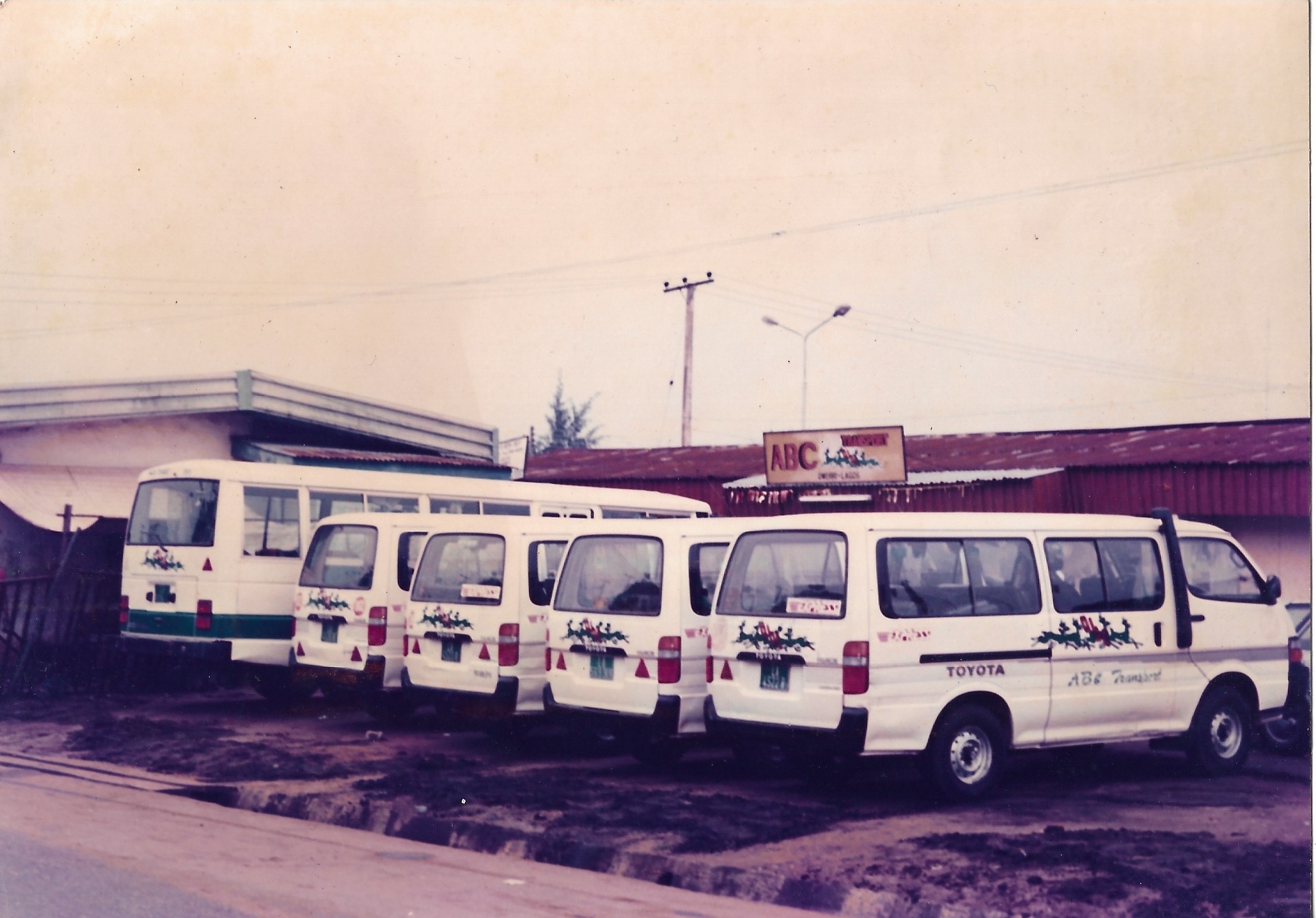
Well of course, the story of ABC has been told many times. The company started as a result of the need for a good travelling option for the discerning passenger who would otherwise fly. Many, many years ago, before ABC started, people were flying not because they loved flying, but just because road transportation wasn’t as dignified. And ABC stepped in to solve that problem. Our first operation was in February 1993. We may not be as visible on the roads as it was 10 years ago, but we’re probably still one of the strongest in road transportation.
I’m very curious, as I’m sure many of our readers are, about why you chose the name ABC?
We were initially registered as Associated Bus Company Limited; that’s ABC. To be frank with you, when I created the name ABC, it was just for its simplicity and the fact that it could be interpreted from different angles. I also thought it reflected the beginning of modern transportation in Nigeria.
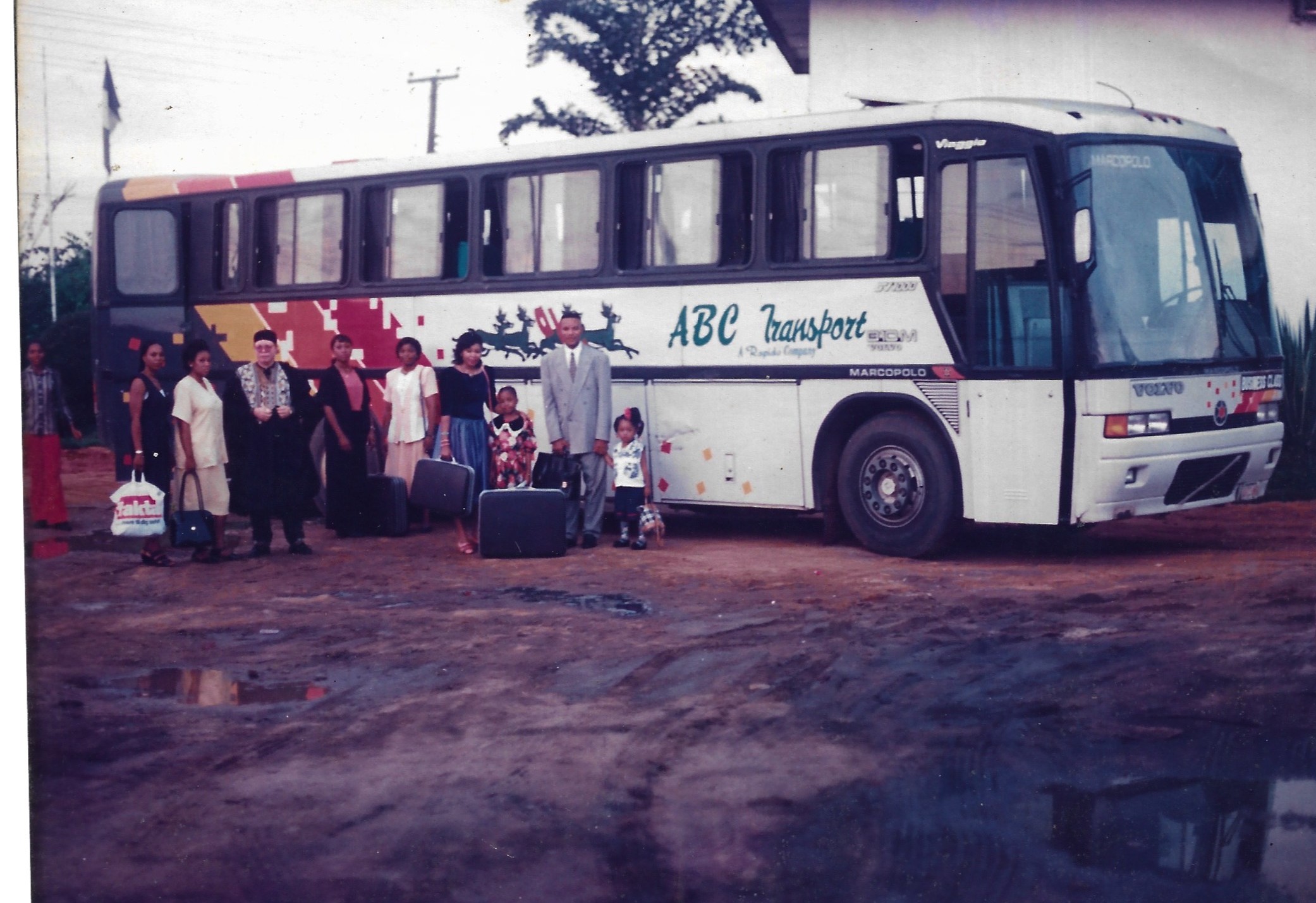
What was the first major success ABC recorded?
Well, I think the first success was finding the niche we were looking for. Let’s put it this way. You go to a town that doesn’t have a five-star hotel, and you build a five-star hotel. And then you begin to wonder will I find people who will be discerning enough to use this service? That was what ABC did. So, our first success was to realise that the people we were really looking for could be won over since they found [in us] well-run services as opposed to what was operating at that point.I remember many years ago we used to publish our magazine, The Reindeer, and as part of it, we had people we called the gold customers and the diamond customers. If I bring any of those magazines today, I will see no less than 10 senators, no less than 2 governors, vice chancellors and the rest of them. These were big people then who were looking for comfort.
I mean, of course, security wasn’t as bad as it is today. Many of the routes were not as serviced by the airlines as they are today. Night operation was very sweet. People could do all they could do in the day, come into the terminal and travel overnight. Many of the big politicians in Abuja today went to Abuja for the first time by ABC night bus. So, the first success was discovering that the kind of people we were looking for were available and that Nigerians just needed something better than what they were experiencing.
Can you tell us more about The Reindeer?
We still have some copies of it in my home library. The magazine was served on the bus monthly, it had the advertising spaces and other sections, which all provided very good reading material for the people.

That sounds just like airlines’ in-flight magazines. It’s clear that passengers’ comfort was really important to you.
Yes, I will tell you that ABC was very well thought-out. I thought about it for more than one year before we even started looking for the money to establish it. It was a kind of hobby for me, because prior to that, I was involved in the educational material business—the company called Rapido. And of course, it involved a lot of travel from the East to the West.
It was one of those trips when the bus actually broke down and afterwards, we were packed like sardines in a tin. A bus that had the capacity of 44 was carrying 70 people and when it broke down, everybody disappeared. And that was when I said, look, this thing can be done better. That was I think 1991. We started putting the studies together and looking for the money from the banks. Then finally, in 1992 we found Diamond Bank who was ready to finance 5 minibuses for 1.5 million and that was how ABC started.
What was typically the most lucrative transport route back then versus now?
Well, we launched what we call the Coach West Africa in 2004. We advertised travel on the West Coast because prior to that, people did not know how close Ghana was to Nigeria because a lot of travel on those routes were informal. We went to the Nigeria Tourism Development Corporation and the ECOWAS secretariat to make a presentation. After due processes were followed and the route was unlocked, it turned out to be our best and most lucrative route. At that time, the economy of Ghana was still very strong. Ghana had been known to be very strong in tourism and we had to advertise tours in Ghana and at one point, we were taking about 12 luxury buses to Ghana, especially during the December peak.
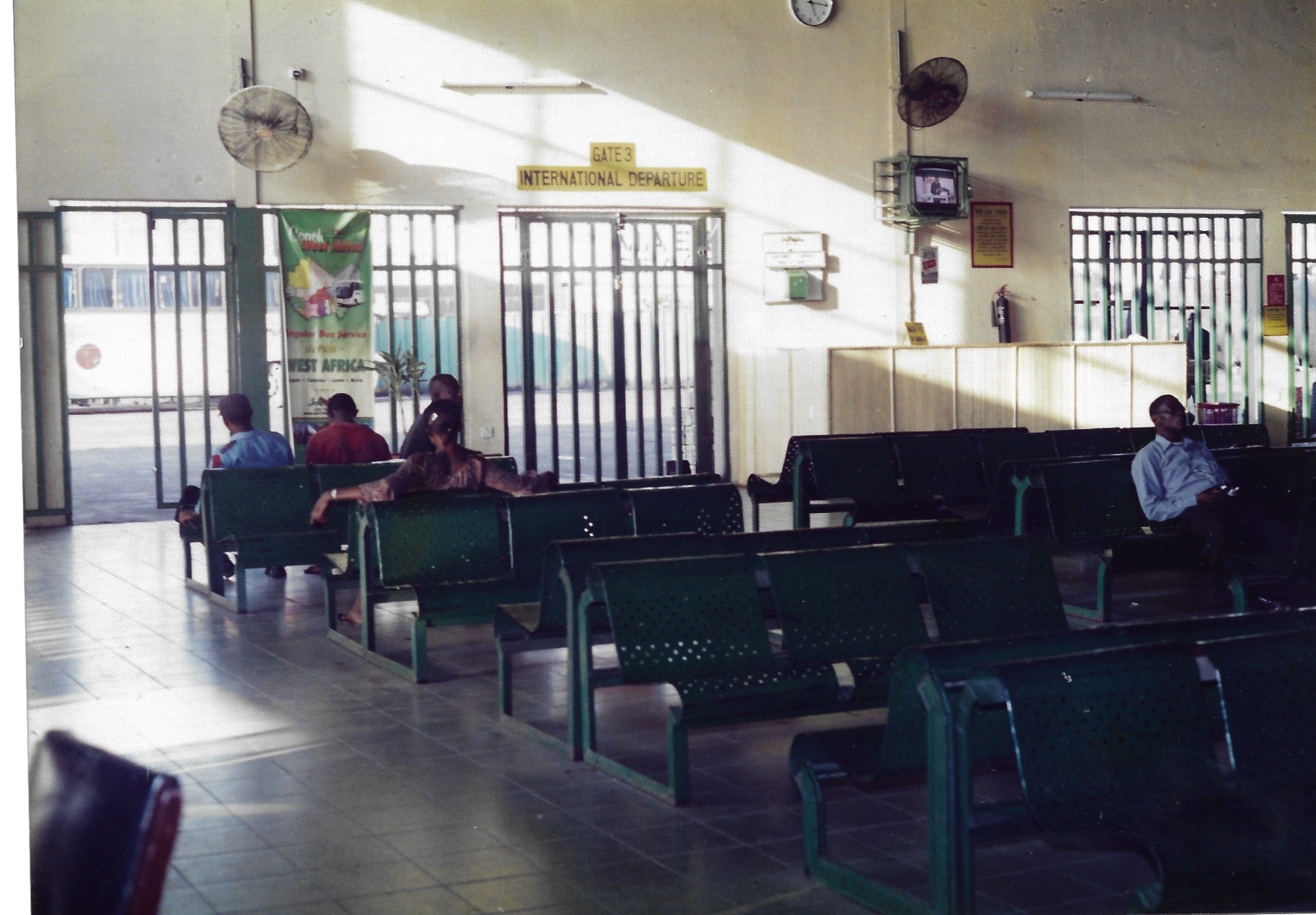
Then on the local route, when we introduced what we call the sleeper service—executive sleeper and the regular sleeper—that had fewer seats that you could recline so that they became a bed. We reduced the capacity in our 55-seater buses to 32 to 38 in some instances so that you could sleep in the bus. It was running between Port Harcourt to Lagos, Port Harcourt-Owerri Lagos-Abuja and so on. Those buses would often be fully booked in advance and of course, there were no security issues. People would board the bus in the evenings, we would come to Benin at our stopover terminal at let’s say 4AM and people were served tea or coffee. They would stay there until daybreak, before they got to their better destinations. So, these were great breakthroughs and quite rewarding services.
Wow, that was quite a lot. What are some of your fondest memories from ABC’s operations through the years?
Yes, first of all, I think in our second year we started creating a customer forum in which we could add our customers every year. Most times, our meetings were at the National Theatre in Lagos. We also had it in Port Harcourt and Abuja and people would come in. You know, social media and communication wasn’t what it is today. So, people could travel for these forums and we would have a full house. We had raffle draws for each forum, and I remember when Suzuki came out, Kia came out, we had promo units which people won. Our customers won cars during these draws. And this was when the middle class was still very active.

One of our magazine issues even featured a story with the caption, ‘the marriage that started in ABC’. We attended the wedding of two people who met in ABC, at the transit terminal in Benin. They started talking and six months later, we were invited to come and witness the marriage. These are some of the things that happened that created fun, and I must tell you it continues to create fun today.
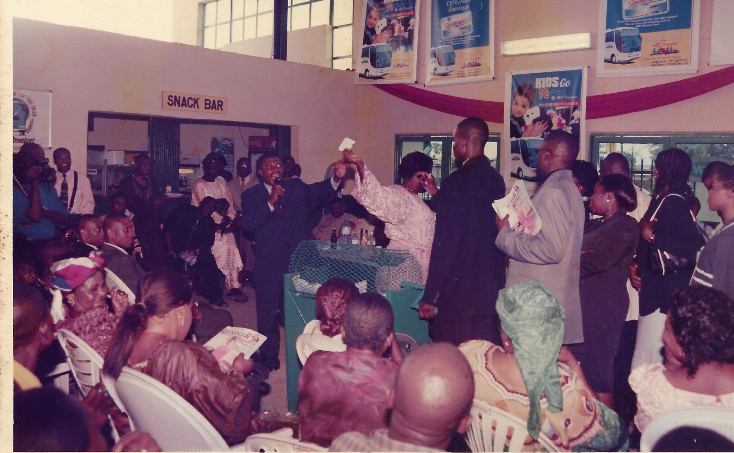
It sounds like you really enjoyed running ABC.
Oh, yeah, very much and in spite of the challenges. ABC didn’t start just to make money, but to prove a point. I remember going to one bank and talking to the manager about the kind of service I wanted to run, and the guy asked where I planned on getting my buses from. I told him I would start with Toyota buses imported from Japan. The guy sarcastically told me, please tell them to send the drivers who will do this thing you are talking about along with the buses. A lot of people were hesitant to come on board and so, we had to work hard to make sure that everything was put in place.
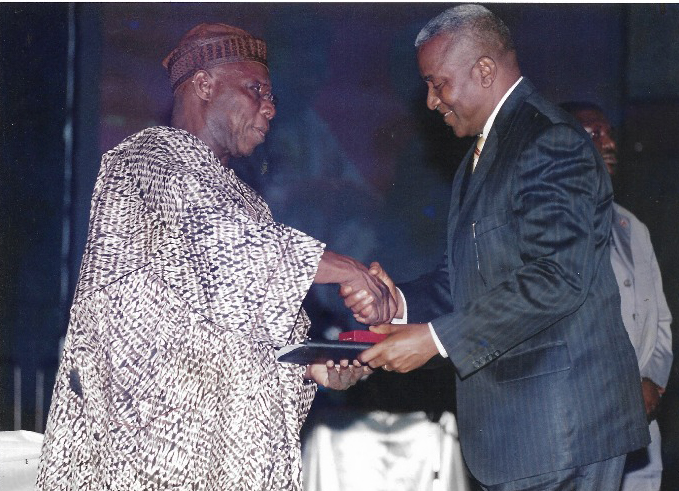
Even in the first year, the drivers protested certain conditions we gave. We would say, leave by this time whether the bus is full or not, and so the vehicles would leave half empty. And the drivers will come to me after a few months and say, ‘Oga, look. This business will collapse. This is not how to do transport.’
Still, we were focused on what we wanted to do. And of course, our slogan was ‘comfort and safety’. We paid a lot of attention to those two things. We had regulated speeds, and I know many young people who didn’t want to travel ABC because ABC was too slow. I know many young people who wouldn’t travel ABC, but when their mother visited them where they lived, they put her in ABC. So, the concept was very clear.
As for the drivers that you mentioned, did you then have to adjust the operations for them?
No, we never adjusted. We didn’t adjust because I think before we started, we had gotten the Road Safety officials to train these drivers on basic safety and all of that. And of course, I had my numbers that, look, if I did this this way and charged a little extra, I was still going to break even. And then of course, when the news went out there and people enjoyed it, we were having the buses full days before the departure. I mean, that started happening just six months down the line.
Right, so there was no need. Was the process of hiring drivers difficult?
I think it was easy, considering that from our old business, we had an active HR department, and we spelt out what we wanted. We were particular about literacy and having a good attitude. And because we were the first to give drivers nice uniforms and all of that, many of them were drawn to ABC. Along with this, we also created a training school for drivers. So, it wasn’t difficult hiring people. And in fact, many of them have stayed with us until their retirement age. I remember during our 25th anniversary celebration for our pioneer drivers who had stayed with us for 25 years, we gifted them minibuses.
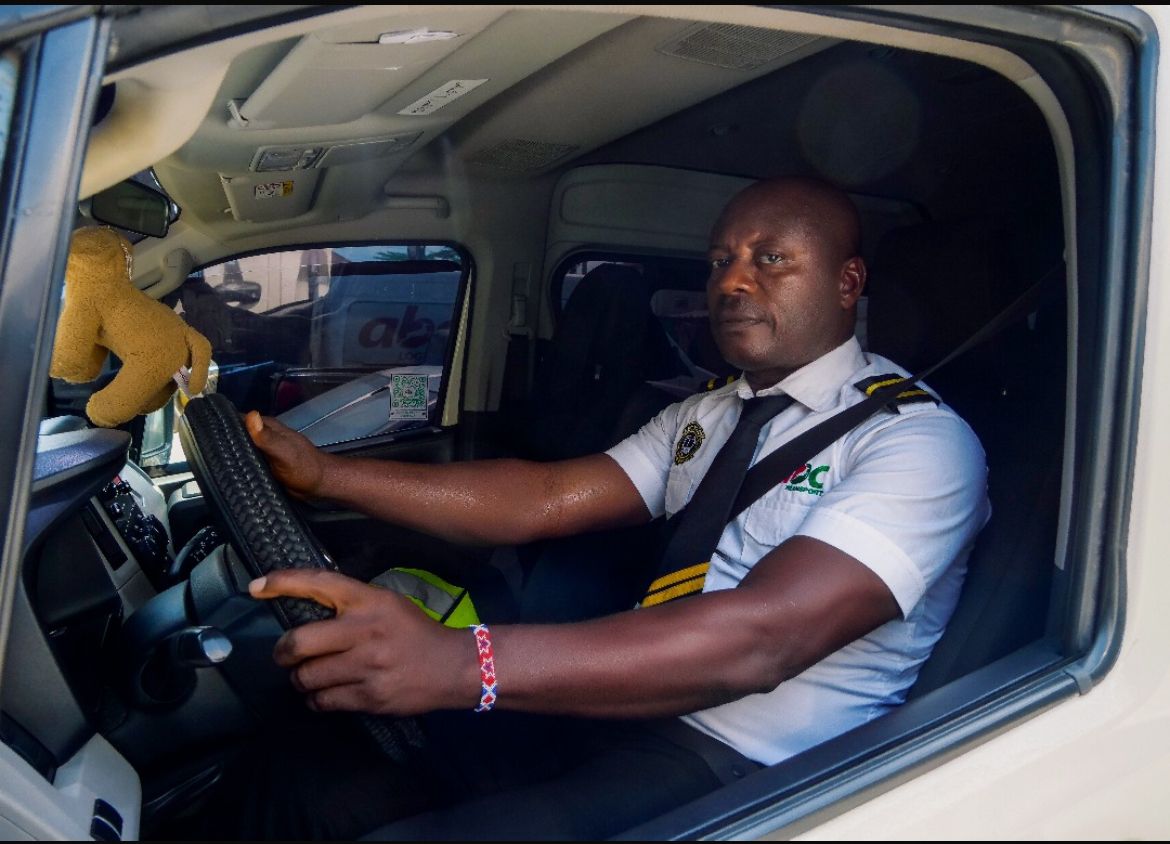
Are you still active in the day-to-day operations of the company?
No, I’m retired now. I retired 2 years ago. I handed over to Jude, my younger brother. He’s a pharmacist by training who had joined the business many years ago and is now the Managing Director. Victor is the Head of Strategy and Marketing. And of course, we have people who have come over time. We have people who have spent 20 years with us, 25 years with us and who have inspired our company culture.
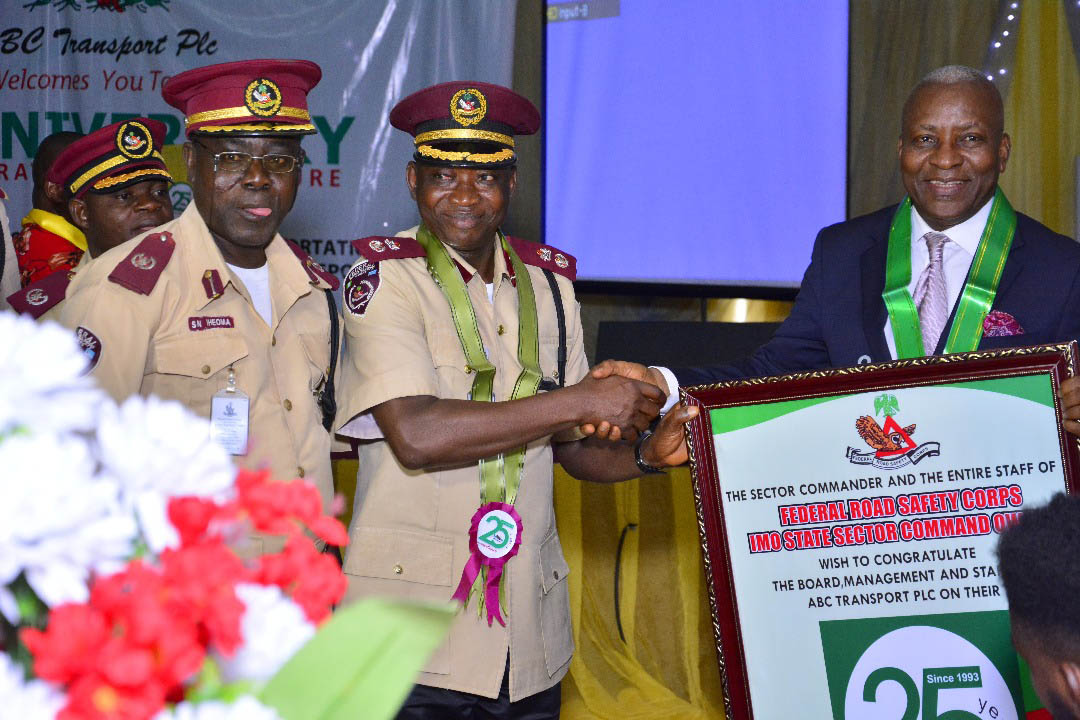
What are some of the various businesses under the ABC group now?
OK, let me start this way. You know all the things I’ve mentioned we were doing, many of these came to be challenged when the roads and security started to deteriorate in Nigeria. By 2000, the roads had gotten to a point where it became impassable. On many of the arterial roads, security was a big issue. At one point, we had at least two policemen in every luxury bus every night and even at a point in the day. So, the state of things had deteriorated very much.
By 2006, we had listed the company in the Nigerian Stock Exchange because we were seeking expansion. As of today, ABC has nearly 19,000 shareholders across the different states of Nigeria. The first businesses we spun out of the passenger operation were the logistics business and the cargo business, and we were a pioneer in that sort of transition.
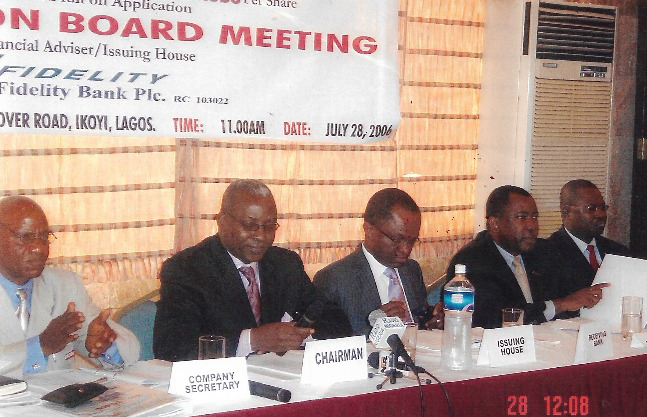
In those days, since there were no emails and using the telephone was a problem, people would always come to the terminal to give letters to drivers to deliver to their relatives at the next stop. The drivers were making money from that and of course if anything went wrong and the letters or parcels were not delivered, they’d come back to the company and try to hold us responsible for what we were unaware of. So, because of this, we tried to formalise the parcel service under the ABC Group and that was how the ABC logistics business started. Two years ago, ABC Cargo Express Limited became a fully owned subsidiary of ABC Transport.
The road challenges convinced the calibre of passengers we had attracted against travelling by road. So, the passenger operation of course started dwindling and we had to strengthen the cargo logistics operation. So, ABC Cargo Express Limited became more strengthened, then came the hauling service.
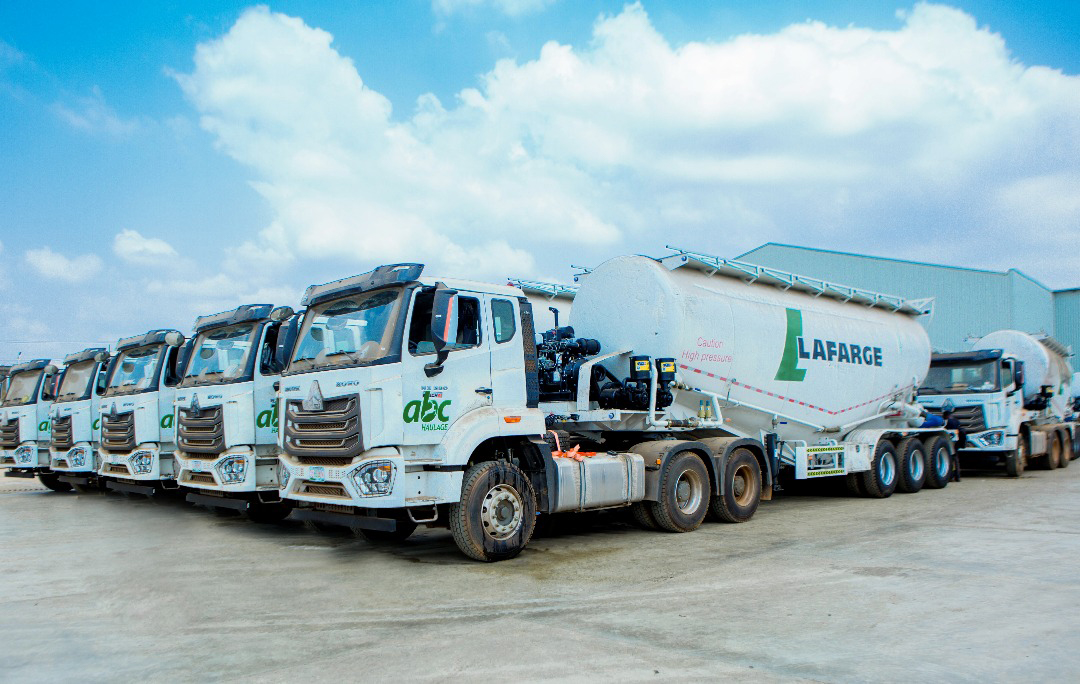
We do specialised haulage of cement for Lafarge as a subsidiary. We are one of the major operators in Lafarge, carrying bag cement and box cement with people in Calabar. What people don’t know is that ABC has more trucks than buses. But because these are not everyday things people see. When you don’t see the buses on the road, you ask, what happened to ABC? But if you go to Lafarge or Cross River State Depot, you’ll see ABC haulage service. Between November and December, we added 30 CNG heavy-duty trucks. We had made an investment of close to 10 billion in the past travels for that division.

Another aspect is hospitality. We were the first to create modern terminals starting with Abuja in 2000 and the Abuja terminal was a reference point at Utako. As part of it, we had created a budget accommodation which today has 130 rooms. We also expanded our driver training academy, which is licenced by the Federal Road Safety, and we are training highly professional drivers, many of whom are finding jobs abroad. And I will tell you that the certificate from ABC Private Training Academy is recognised in the UK and Canada. Right now, the cargo operations and hauling operations are bigger than the passenger operation…Shareholders must have returns. So, we have to go for areas that make the best returns.
What are some of the major challenges ABC has faced and how have you been able to navigate them over time?
For a company that set out to start a revolution, we knew that we were also going to have more challenges than other people. When we started in 1993, there were no cell phones. Cell phones didn’t become widespread till 2001. So, what did we do? We made sure that each of the coaches was fitted with a HF radio in case there was a breakdown on the road or a need for rescue. We conquered the communication challenge in that way.
As for the bad road challenge, that would ordinarily be beyond an individual company, but we insisted on tackling it with advocacy. The people in government knew what ABC was doing. For example, in 2004 I received national honours without knowing who nominated me. I was called in and I was awarded Officer of the Order of the Niger during Obasanjo’s time. And I tell people that I was instrumental to the creation of the Federal Road Maintenance Agency, FERMA. Let me tell you what happened. The roads got very bad, and we were shouting and working with the press to raise awareness. Still, the government wasn’t reacting. So, I think in 1998 or so, I hired a broadcaster with good cameras and chartered a vehicle. I put him on the road for seven days to go and document the roads and interview people. He went to the East, West and the North, and at each point where passengers were stranded on the road because of its poor conditions, he would interview them—from various operators, not just ABC.
People didn’t even know it was an ABC documentary. We put this documentary together in a VHS tape and I took this tape to the Ministry of Works in Abuja. It took a few days, but I was finally able to get them to play the 30-minute tape and it dawned on the Minister how bad the roads were. He then took it to President Obasanjo to watch it and by the next week, Obasanjo announced the formation of the Road Maintenance Task Force. Then he sent the Federal Road Maintenance Agency Bill to the House [of Representatives]. While defending the bill at the House, I played the documentary for them. And that was how FERMA, which I was a board member of, came to be. There were other ways in which we advocated for and partnered with the authorities to solve our challenges.
Wow, that’s amazing. You clearly were very innovative even back then, so how have you been able to integrate modern technology into your operations now?
Yes, right from time we’ve been keen on adopting technology. I mentioned HF radios before and as soon as cell phones came in, we adopted that as well by 2001 by making sure all our drivers had them. We also installed a callback system whereby if any driver wanted to reach our hub—that’s the central dispatch system—what you do is just tap your phone and the system will automatically call you back. We still have that system at our hub.
As early as 2007, we had adopted online ticketing, and it was very much a novelty then. We had to get a local software designer to design the website. Tracking systems were also adopted, and I think we were the first to do that. There is also an in-house tracking unit that tracks all the vehicles. On the platform, they have more than 600 vehicles which we track daily for speed, for location, for terminal destinations in the evening and so on. And of course, we have adopted it, in the area of safety, speed limiting devices. These technologies have helped us a lot. Our ticketing system is one of the easiest ones to use in the transport sector.
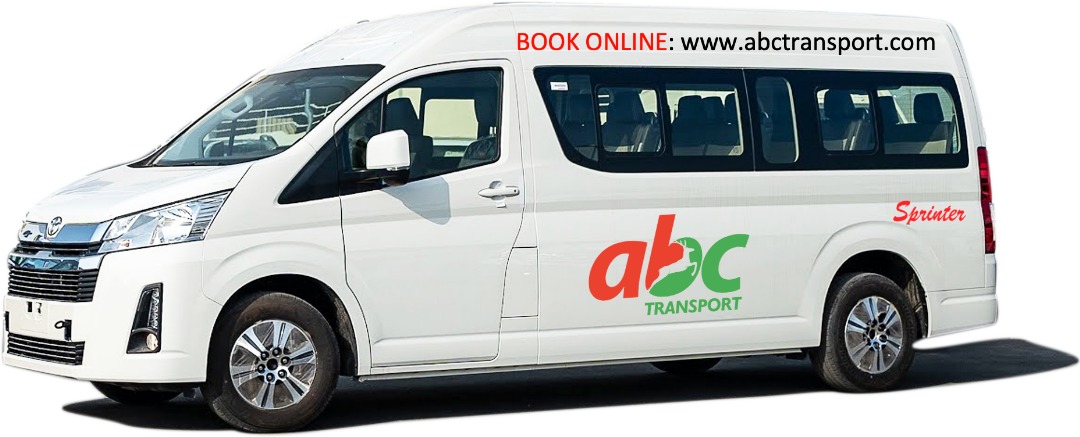
What’s the step-by-step process for a passenger travelling or sending a parcel with ABC?
We have an app which you can now download on your mobile phone. On it, you can book your ticket and pay online as well. We also have an app where you can book your parcel delivery; it can be picked up from you or dropped at any of various locations and delivered to your desired destination. The apps cover our more than 80 locations nationwide as well as our locations in Benin, Togo and Accra, Ghana.
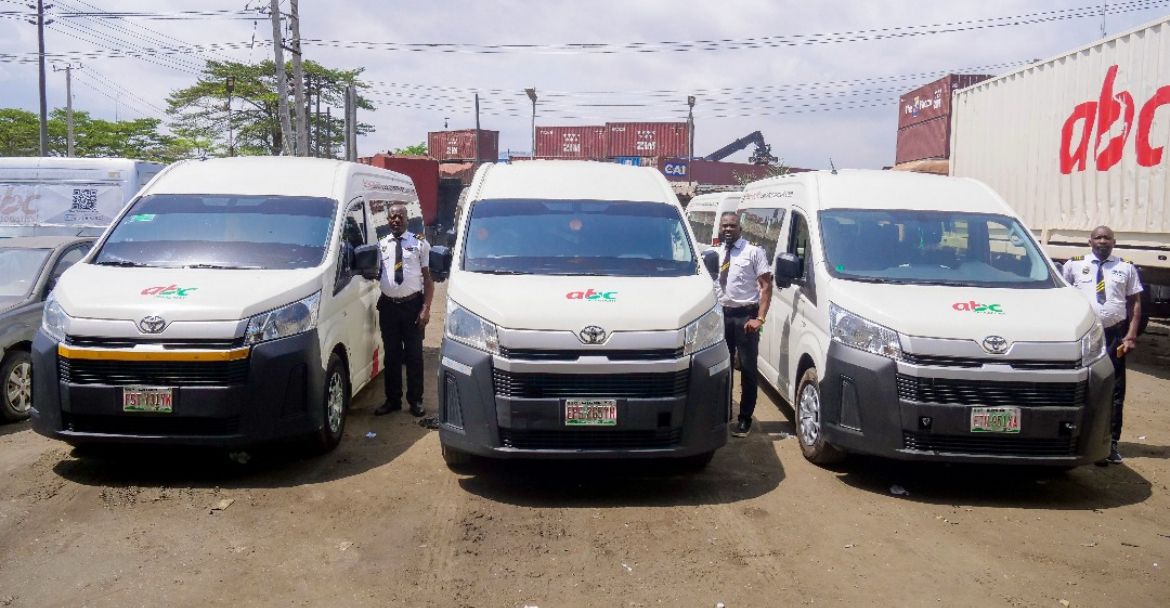
In your experience, what would you say is unique about Nigerian road transportation?
Well, people travel a lot. And even though social travel has significantly reduced because of the increased cost of transportation, especially in the past year—ticket prices have doubled in the past year. But from another angle, what is unique about Nigerian transportation is the absence of regulation. It’s only in Nigeria that anybody can just paint a vehicle and put a signboard and people start entering and then you do whatever you like. In other climes, you have to be registered, you have to be certified and fully regulated to make sure that you are not endangering people’s lives. So here, you see all sorts. People retire and maybe they use the vehicle they retired with to launch a mini transportation company and so on.
So, 32 years in, what have you learnt on the journey?
Well, of course I’ve had a lot of interactions, and I’d say and I’m an expert in managing people now because I’ve managed more than 2,000 people of all types. I’ve also learnt that Nigerians are very receptive to good service and innovation. Nigerians support good ideas. And another thing I’ve learnt, philosophically, is that if you don’t push something, it doesn’t move. If we don’t say we want to change this, nobody will change it. Somebody has to pioneer it, and you can pioneer that at a cost. It might not be at a profit.
Finally, what’s next for ABC?
I guess that will be answered by the Managing Director, but we’ve put it on a pedestal that it will keep moving by the grace of God. We have tried to institutionalise ABC. We now have diversified ownership, even though there may be dominance of the [Nnaji] family. And we’ll keep moving forward.


